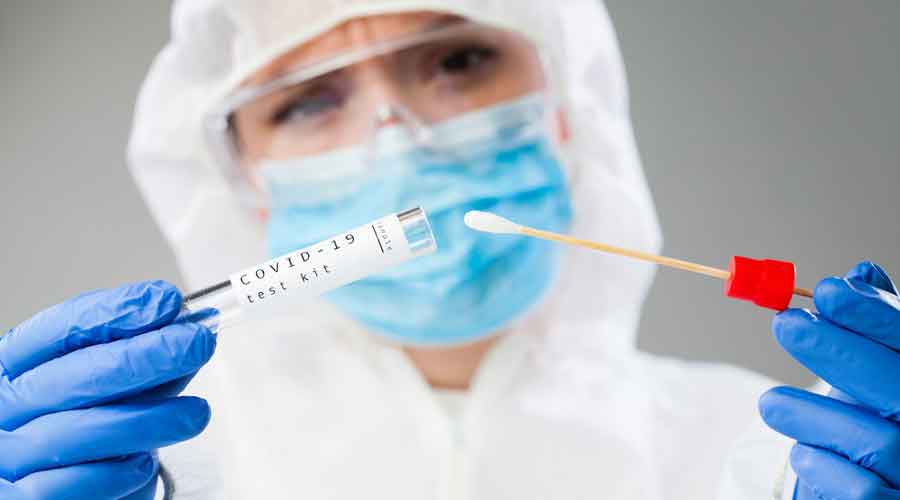A small, new real-world study suggests that two widely used at-home antigen tests, the Abbott BinaxNOW and Quidel QuickVue, may fail to detect some omicron infections even when people are carrying high levels of the coronavirus.
The study, which has not yet been peer-reviewed, focused on 30 people infected with the virus at five workplaces that experienced what were most likely outbreaks of the omicron variant in December. The people received both saliva-based PCR tests and rapid antigen tests using nasal swabs.
It took three days, on average, for people to test positive on a rapid antigen test after their first positive PCR result. In four cases, people transmitted the virus to others while the rapid test showed the negative result, according to the study, which was conducted by several members of the Covid-19 Sports and Society Working Group.
It is not clear whether the infections were missed because the antigen tests are inherently less sensitive to Omicron or because saliva tests may be better at detecting the new variant.
But the results are consistent with other preliminary evidence that the at-home tests that many Americans have come to rely on — at least as currently administered, with a nasal swab — may fail to detect some Omicron cases in the first days of infection.
The researchers said they shared their results with federal officials — including at the White House, the Food and Drug Administration and the Centers for Disease Control and Prevention — in real-time, as the outbreaks were occurring last month.
“They’re aware that there are flaws with antigen testing,” said Dr Robby Sikka, an author of the study and chair of the working group.
The study comes a week after the Food and Drug Administration released its own update on the effectiveness of the rapid antigen tests. “Early data suggests that antigen tests do detect the Omicron variant but may have reduced sensitivity,” the agency said.
Many of the studies are early and small, and much more data is needed. The tests, which can deliver results at home in minutes, remain an important public health tool, and positive results are especially likely to be informative, many scientists said.
New York Times News Service










